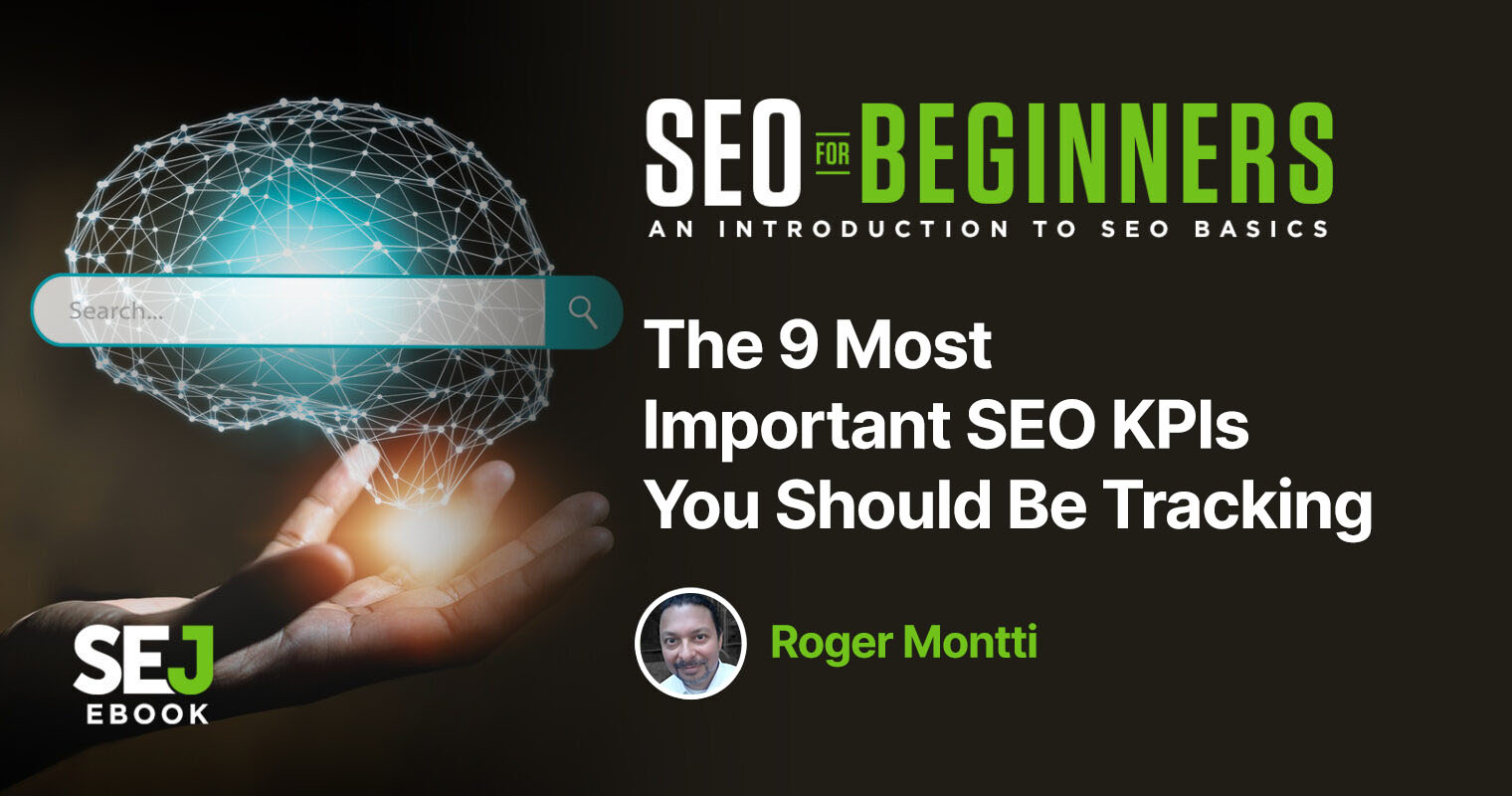103 Small Business Marketing Ideas To Help You Grow via @sejournal, @adamproehl
As a small business owner, you’re already busy and overwhelmed. Here are 103 easy, proven small business marketing ideas you can try today. The post 103 Small Business Marketing Ideas To Help You Grow appeared first on Search Engine...

As a small business owner, you’re probably already busy and have heard many marketing ideas that sound impossible (or, at least, very difficult) to implement.
It can be challenging to come up with proven ways to improve your online presence, build your email list, engage prospective customers in social, and drive measurable revenue.
In this column, you’ll find 103 small business marketing ideas designed to help you grow your business either through gaining new customers or retaining existing ones.
And you can actually execute these ideas on your own!
Keep reading for tactics you can use in your small business to create better and more content, grow your social presence, acquire and retain customers, and more.
Creating Content
If you’ve been paying attention, you know you need content.
It may sound intimidating, but you and your employees have the power to create powerful, relevant content with a basic smartphone.
Here are some easy examples:
1. Picture of staff member(s).
2. Picture of a new team member.
3. Picture of owner or boss doing something humorous.
4. Picture of new products being unboxed or stocked.
5. Picture of a happy customer (with proper consent, of course).
6. Picture of an office pet (if applicable).
7. Picture of a staff member enjoying a seasonal holiday gathering.
8. Picture of staff members in action (meeting, helping customers, stocking shelves, etc.).
9. Picture of a happy customer (along with a caption using an infinite number of apps that can do this).
10. Picture of new equipment (especially if it’s a home service company).
11. Picture of staff working on location (if it’s out in the field).
12. Picture of “behind the scenes.”
13. Memes made from your own pictures.
14. Video of a birthday or some other type of celebration.
15. Video announcement of a promotion, product, or special.
16. Video of a customer testimonial.
17. Video with some helpful advice the customer may find useful.
18. Video supporting a local cause.
19. Video showing off new products or services (30 seconds to a minute).
20. Video of the owner talking about the mission of the company.
21. Video interview with team members.
22. Assemble your pictures into a video (plenty of apps can do that).
Using Social Media To Grow Your Business
With local newspapers on the decline, social media has become even more important because you’re likely to find your customers on one of the platforms.
The tips below are relevant regardless of the platform. Don’t let your biases or habits determine the social media platforms you use.
You may not use [insert Social Media platform name], but your business needs to have a presence if your customers do.
23. Post the pictures described above.
24. Post one of the videos described above.
25. Post a customer review.
26. Go live with a Q & A. Have seed questions prepared.
27. Go live at an event or party your business hosts or participates in.
28. Share good news from another local business.
29. Share a post from a local charity or non-profit looking for help.
30. Answer any questions or comments that come in from customers.
31. Have a customer event and post about it.
32. Post “little known facts” or a historical anniversary relevant to your market or community.
33. Post a picture of your business as the seasons change.
34. Post customer stories (with permission, of course).
35. Post about a business challenge you’ve had and overcome.
36. When a local school team or organization is having success, post about them.
37. Turn a frequently asked question into a helpful advice post for your customers.
38. Post about good news for the business.
39. Celebrate a new hire.
Customer Acquisition
Acquiring new customers is often about doing the little things correctly.
People in your community need the goods and services you are selling.
Part of your job is to make it easy for them to do business with you.
Below are a few items for your customer acquisition checklist:
40. Ask for a referral in an email.
41. Ask for a review in an email or text.
42. Allow customers to send a text message inquiry.
43. Make sure it’s easy for customers to contact you (test it often).
44. Run a simple paid search ad.
45. Make sure your business shows up on the map.
46. Exhibit at a tradeshow or local fair.
47. Sponsor a team or organization (and frequently show up).
48. Run a paid social campaign (pay $10 -$20 to boost a post or video to a local audience).
49. Start building an email list by giving something of value in return.
50. Use a QR code to lead customers to sign up to receive an instant coupon via SMS.
51. Start referring customers to other (non-competitive) businesses.
52. Join a networking group.
53. Participate in community events and gatherings.
Customer Retention
Acquiring new customers is not enough to sustain a business.
Work hard to retain your current customers or you may constantly be at a disadvantage on an uphill climb.
Here are a few simple ideas to give you a leg up:
54. Send a quick follow-up survey after the purchase.
55. Ask for a review in an email or text.
56. Send a thank you to the customer.
57. Follow up with the customer to make sure they’re happy.
58. Send offers (price, sneak peek, early access, etc.) to existing customers.
59. Have a customer appreciation event.
60. Set up a customer advisory group.
61. Send a monthly email to your customer with announcements, specials, and even an occasional personal update.
62. Create a customer of the month program.
63. Know who your best customers are and offer exclusives.
Promotion
To be blunt, you need to get the word out to give your business a chance to succeed.
While “Field of Dreams” is a great movie, the approach doesn’t work in business (“If you build it, they will come”).
64. Add a promotional link in email signatures.
65. Develop some product (or service) bundle deals to increase your average order value.
66. Test a buy now, pay later service on your ecommerce website.
67. If you’re a service company, offer a cash or upfront payment discount.
68. Announce all promotions on social media channels.
69. Test various promotional discounts, bundles, ways to pay, etc.
70. Partner with other local businesses to promote yours.
71. If you’re going to do swag, make it memorable for your customers.
72. Become the face of your business. “People do business with people they like.”
73. Support your local news publications when it makes sense.
74. Get a logo to put on your vehicle.
75. Partner with a bank to offer financing on larger purchases.
Measuring Effectiveness
If you’ve made it this far, you’re probably thinking: Great! But how do I know whether or not any of this is working?
Below are some fundamental things you can do to measure the effectiveness of your efforts:
76. Add Google Analytics to your website (or have someone do that).
77. Document what success looks like from a business perspective.
78. Track your progress toward your goals.
79. Know the difference between a top and bottom of funnel metric.
80. Keep track of coupons redeemed.
81. Track incoming calls, messages, and emails.
82. Make sure conversion tracking is set up for your digital advertising.
83. Ask customers how they heard about you.
84. Measure your foot traffic (if your business is retail).
85. Measure your average order value.
86. Measure your conversion rate (online and in physical stores).
87. Document any changes to your promotion and messaging and note the effect on business.
88. Track your bottom line to ensure your advertising and promotions drive profitable sales.
89. Calculate the lifetime value of a customer.
90. Know what it costs to acquire a new customer.
91. Know your customer retention rate.
92. Know the cost difference between retaining a current customer and acquiring a new one.
93. Test a discount vs. non-discount type of offer (bundle or buy now, pay later).
Getting Help For The Needed Work
Time is money, and you will find that sometimes, it’s just better to hire an expert who can help you market your business.
Below are some tips for doing just that:
94. Ask for a referral to hire expertise in digital marketing (PPC, SEO, email, web design. and development).
95. Get an intern to create all the pictures and videos outlined in the content section.
96. Hire a local freelancer if you have budget constraints.
97. Be crystal clear about your definition of success for anyone you hire.
98. Ask to see relevant case studies before hiring anyone.
99. Get an SEO audit to identify any gaps.
100. Use online resources like Fiverr, Upwork, and 99 Designs for some of your needs.
101. Hire someone who can write content for you.
102. Ask an employee or someone you know to edit videos. You might be amazed at how good a job they do.
103. Keep a handy list of trusted resources for when you need them.
Getting Started
That’s the list!
103 small business marketing ideas you can actually implement.
The best advice I can give you for getting started is to pick a couple of easy ones (most likely in the content section) and have at it.
Before you know it, you find your rhythm.
Good luck!
More resources:
SEO For Small Business: 5 Ways To Punch Above Your Weight Small Business SEO Checklist: 11 Ways To Improve Rankings Perfectly Optimized Content From Start To FinishFeatured Image: KucherAV/Shutterstock

 ValVades
ValVades 































